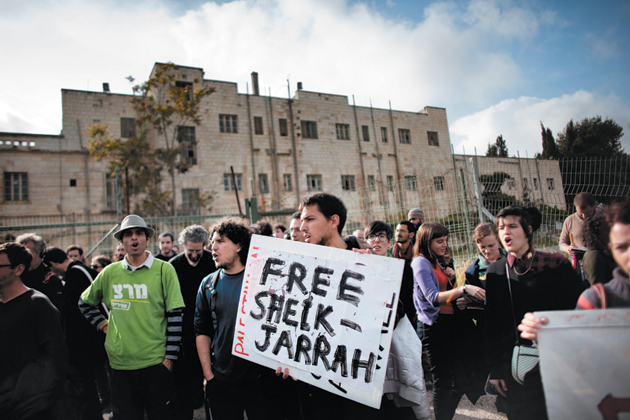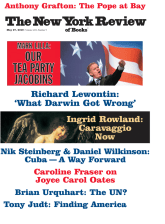In a recent public letter to President Obama, Elie Wiesel urged the President not to “pressure” Israel to cease settlement activity in Jerusalem. According to Wiesel:
For me, the Jew that I am, Jerusalem is above politics. It is mentioned more than six hundred times in Scripture—and not a single time in the Koran. Its presence in Jewish history is overwhelming…. To many theologians, it IS Jewish history…. It belongs to the Jewish people and is much more than a city, it is what binds one Jew to another in a way that remains hard to explain. When a Jew visits Jerusalem for the first time, it is not the first time; it is a homecoming…. Contrary to certain media reports, Jews, Christians and Muslims ARE allowed to build their homes anywhere in the city. The anguish over Jerusalem is not about real estate but about memory.
The views expressed by Wiesel are not shared by a growing movement of Israelis who oppose the continued expansion of settlements and who have been protesting the eviction by the Israeli government of Palestinian residents of the East Jerusalem neighborhood of Sheikh Jarrah. These Israelis have responded to Mr. Wiesel in the following letter. Among the one hundred signers are Israel Prize Laureates Avishai Margalit and Zeev Sternhell, former Knesset Speaker and Jewish Agency Chairman Avrum Burg, Professors David Shulman and Moshe Halbertal, former Knesset member Zehava Galan, and other Jerusalemites, many of whom are prominent intellectuals and academics.*
—Avner Inbar and Assaf Sharon
Dear Mr. Wiesel:
We write to you from Jerusalem to convey our frustration, even outrage, at your recently published letter on Jerusalem. We are Jewish Jerusalemites—residents by choice of a battered city, a city used and abused, ransacked time and again first by foreign conquerors and now by its own politicians. We cannot recognize our city in the sentimental abstraction you call by its name.
Our Jerusalem is concrete, its hills covered with limestone houses and pine trees; its streets lined with synagogues, mosques, and churches. Your Jerusalem is an ideal, an object of prayers and a bearer of the collective memory of a people whose members actually bear many individual memories. Our Jerusalem is populated with people, young and old, women and men, who wish their city to be a symbol of dignity—not of hubris, inequality, and discrimination. You speak of the celestial Jerusalem; we live in the earthly one.
For more than a generation now the earthly city we call home has been crumbling under the weight of its own idealization. Your letter troubles us, not simply because it is replete with factual errors and false representations, but because it upholds an attachment to some otherworldly city that purports to supersede the interests of those who live in the this-worldly one. For every Jew, you say, a visit to Jerusalem is a homecoming, yet it is our commitment that makes your homecoming possible. We prefer the hardship of realizing citizenship in this city to the convenience of merely yearning for it.
Indeed, your claim that Jerusalem is above politics is doubly outrageous. First, because contemporary Jerusalem was created by a political decision and politics alone keeps it formally unified. The tortuous municipal boundaries of today’s Jerusalem were drawn by Israeli generals and politicians shortly after the 1967 war. Feigning to unify an ancient city, they created an unwieldy behemoth, encircling dozens of Palestinian villages that were never part of Jerusalem. Stretching from the outskirts of Ramallah in the north to the edge of Bethlehem in the south, the Jerusalem that the Israeli government foolishly concocted is larger than Paris. Its historical core, the nexus of memories and religious significance often called the “Holy Basin,” makes up a mere one percent of its area. Now the government calls this artificial fabrication “Jerusalem” in order to obviate any approaching chance for peace.
Second, your attempt to keep Jerusalem above politics means divesting us of a future. For being above politics is being devoid of the power to shape the reality of one’s life. As true Jerusalemites, we cannot stand by and watch our beloved city, parts of which are utterly neglected, being used as a springboard for crafty politicians and sentimental populists who claim that Jerusalem is above politics and negotiation. All the while, they frantically “Judaize” East Jerusalem in order to transform its geopolitics beyond recognition.
We invite you to our city to view with your own eyes the catastrophic effects of the frenzy of construction. You will witness that, contrary to some media reports, Arabs are not allowed to build their homes anywhere in Jerusalem. You will see the gross inequality in allocation of municipal resources and services between east and west. We will take you to Sheikh Jarrah, where Palestinian families are being evicted from their homes to make room for a new Jewish neighborhood, and to Silwan, where dozens of houses face demolition because of the Jerusalem Municipality’s refusal to issue building permits to Palestinians.
We, who live in Jerusalem, can no longer be sacrificed for the fantasies of those who love our city from afar. The Jerusalem of this world must be shared by the people of the two nations residing in it. Only a shared city will live up to the prophet’s vision: “Zion shall be redeemed with justice.” As we chant weekly in our vigils in Sheikh Jarrah: “Nothing can be holy in an occupied city!”
This Issue
May 27, 2010
-
*
A full list of signers is available at the Just Jerusalem (Sheikh Jarrah) website. ↩




